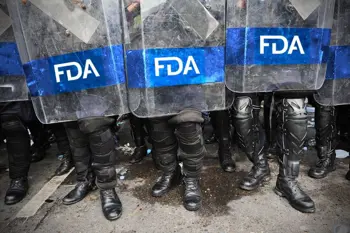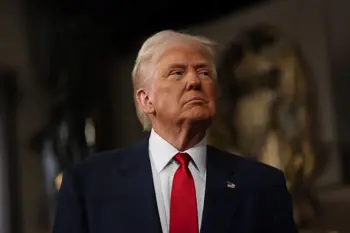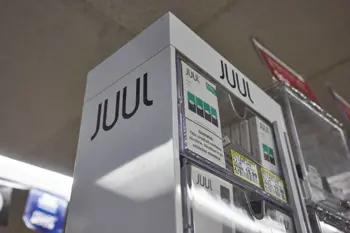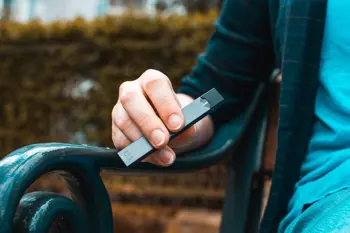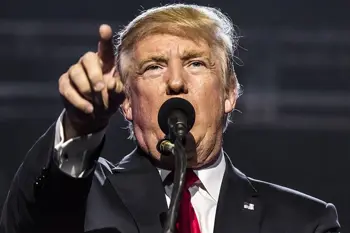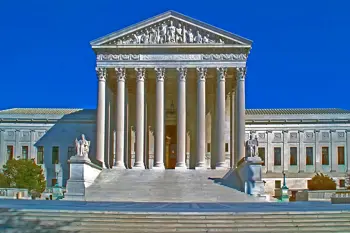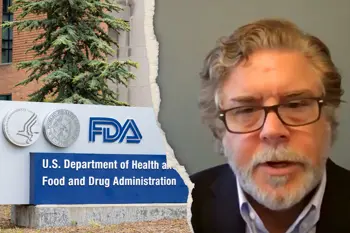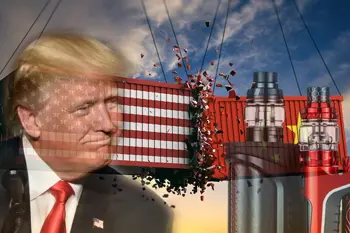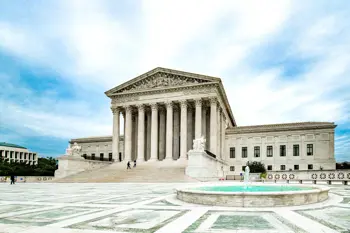With less than two weeks until the Nov. 5 general election, some U.S. voters who vape or use nicotine pouches are wondering which presidential candidate would be best on the issue of access to nicotine products.
It’s a complicated question, and the likely answer is that neither candidate will be especially helpful. But it is certainly true that Democrats in general are more likely to give the FDA leeway and encouragement to impose restrictive regulations on vapes, and Republicans more likely to appoint judges willing to question actions by federal agencies.
But Republicans in Congress will also probably support tobacco industry-promoted legislation intended to protect “American manufacturers” (like R.J. Reynolds and Altria) from competition by “illegal Chinese vapes,” and it seems unlikely that Trump would refuse to sign such laws if they received broad GOP support.
Let's take a look at both candidates' history regarding vaping and nicotine products, and a glance at their positions on legalizing marijuana.
History lesson: Donald Trump and the “vape vote”
Conservative-leaning groups have worked hard to convince former President Donald Trump and other Republican candidates that the “vape vote” is worth pursuing. Whether there really is a dedicated core of single-issue voters devoted to protecting access to vaping is questionable, but some candidates, apparently including Trump, have bought into the idea.
“I saved Flavored Vaping in 2019, and it greatly helped people get off smoking,” Trump posted last month on his Truth Social platform. “I raised the age to 21, keeping it away from the ‘kids.’ Kamala and Joe want everything banned, killing small businesses all over the Country. I’ll save Vaping again!”
To be precise, if Trump “saved vaping” in 2019, he saved it from himself. After all, it was Trump who announced in September 2019 that his administration would ban flavored vapes.
Conservative pro-vaping activists—especially Paul Blair, then with Americans for Tax Reform—worked tirelessly to convince the White House that a flavor ban would cost Trump the 2020 election.
If Trump banned flavors, Blair and others argued, there would be enough angry vapers in states Trump had won by small margins in 2016 to swing the results the other way in 2020. Vapers jumped on board, engaging in a CASAA-led White House phone campaign, and vaping advocates organized a rally across from the White House.
Trump backed off from his original hardline position almost immediately, tweeting, “While I like the Vaping alternative to Cigarettes, we need to make sure this alternative is SAFE for ALL! Let’s get counterfeits off the market, and keep young children from Vaping!”
Trump even held a White House listening session where vaping advocates cajoled and flattered Trump, and eloquently defended vaping, while White House adviser Kellyanne Conway and Utah Senator Mitt Romney (supporters of the ban) smirked at the advocates and whispered snarky comments.
It took over three months of relentless effort to convince the administration to abandon an across-the-board flavor ban and fall back to a ban on the sale of flavored pods and cartridges.
In the end, Trump regretted proposing the flavor ban—not because he cared about vapers having access to their preferred products, but because he felt his advisers had pushed him into an avoidable political firestorm. He specifically blamed Department of Health and Human Services (HHS) Secretary Alex Azar—who had supported the flavor ban—for encouraging Trump to get involved.
Other vaping-related actions taken (or not taken) by the Trump administration included:
- Trump appointed Scott Gottlieb as FDA commissioner. Gottlieb’s own history with vaping was complicated, including postponing the deadline for marketing application (PMTA) submissions, and ultimately claiming Juul had caused a youth vaping “epidemic.” Gottlieb also oversaw the rollout of misleading FDA anti-vaping commercials.
- Trump imposed tariffs on Chinese goods, including vaping products.
- The Trump FDA and White House proposed $100 million in vape industry user fees to help fund the FDA Center for Tobacco Products.
- Trump’s CDC director allowed the agency to suggest that the 2019 “EVALI” lung injury outbreak could be the result of nicotine vaping.
- Trump supported and signed a bill that changed the legal minimum age for vaping product purchases from 18 to 21.
- A couple weeks after the flavored pod ban was announced in January 2020, HHS Sec. Azar told a radio interviewer that the Trump-led FDA would introduce a “streamlined approval” process for small vape businesses preparing to submit premarket tobacco applications (PMTAs) later that year. That never happened, and millions of PMTAs from small businesses were rejected in 2021.
- Trump signed the budget bill that modified the Prevent All Cigarette Trafficking (PACT) Act to include vaping products and banned U.S. Mail delivery of vapes.
Even if Trump doesn’t “save vaping,” his judicial appointments might
A lot of Trump’s involvement with bad vaping policy decisions stems from his habit of following questionable advice from people around him. Alex Azar and First Lady Melania Trump wanted a flavor ban, so he jumped on board immediately because it seemed intuitively like the kind of thing most people would like. What he found was that the people who cared the most decidedly did not like it. Oops.
Now he wants vapers to think he’ll be on their side. Maybe he will. But one thing is certain: if he’s elected, he’ll never need anyone’s vote again.
However, despite his history of supporting bad vaping policy, some vaping advocates point out that Trump is the best presidential choice based solely on his likely judicial appointments. His previous nominations of conservative district and circuit court judges have helped save the independent vaping industry (at least temporarily) from certain extinction, and his Supreme Court appointees are probably responsible for the court agreeing to consider the FDA’s appeal of the Triton decision, which could reshape the PMTA process. The conservative Supreme Court also decided earlier this year to eliminate so-called "Chevron deference" that gave federal agencies like the FDA a huge advantage in any legal dispute.
Kamala Harris: Is she the vaping freedom candidate?
Vice President Kamala Harris’s history with vaping is a lot shorter and less interesting than former President Trump’s.
As California attorney general, she sued NJOY in 2015, obtaining a consent agreement that restricted the company’s advertising in the state. Later that year, she supported a bill introduced by State Senator Mark Leno that would have defined vapes as tobacco products in California.
Her running mate, Minnesota Governor Tim Walz,would have banned flavored vapes in 2019, if he had the executive power to do so. Luckily, he didn’t.
Although Harris hasn't been personally involved in the Biden administration's rotten vaping policy, there’s no reason to believe Harris would take a different stance on vaping than President Biden or any other establishment Democrat in Washington. Regarding vaping, a Harris presidency would probably look similar to the last four years—which have not been good for vapers and other nicotine consumers.
Biden named California Attorney General Xavier Becerra as HHS secretary, and then nominated Robert Califf to lead the FDA. Califf hired anti-vaping CDC epidemiologist Brian King as Center for Tobacco Products director, and the prohibitionist dream team has since done its damnedest to kill vaping. If Harris leaves them in their jobs, or names new FDA leaders with the same beliefs, the agency will continue to deny facts and cherry pick evidence in order to deny consumers access to the vapes they want.
The kneejerk opposition to vaping shared by Democrats and their favorite policy experts is a byproduct of the Tobacco Wars of the 1990s. Most leaders of the party have convinced themselves (or been convinced by their tobacco control allies) that vaping is a tobacco industry trick, and that all nicotine products are equally evil and intended to addict helpless children. FDA tobacco regulators have largely shared this point of view. Most Democrats simply accept these beliefs as gospel and are not interested in hearing arguments in favor of tobacco harm reduction or consumer freedom.
It will be Democrats' own fault if vapers, fearful of more nonsensical restrictions and bans, vote en masse against the party that has gone out of its way to deny consumers the freedom to use low-risk nicotine products.
Interestingly, Harris has made a stab at branding herself as the freedom candidate, largely based on her opposition to abortion restrictions. It remains to be seen whether the “freedom to make decisions about your own body” that she mentions in ads extends also to nicotine users or users of other drugs.
Where do Harris and Trump stand on marijuana legalization?
Kamala Harris is the first major-party presidential candidate to support complete federal legalization of marijuana, although she hasn’t laid out details of her plan.
Trump so far supports letting states decide if they want legal recreational weed—the same position he took in 2016. He maintained that as policy throughout his last term as President.
Both candidates have accused the other of being disingenuous in their cannabis legalization positions, but both seem to have essentially stuck to their long-term stances.
Any major change to marijuana law will require congressional action, so Harris’s promise of federal pot legalization would probably require Democrats to take both houses of Congress, or Republicans to support a compromise bill.
